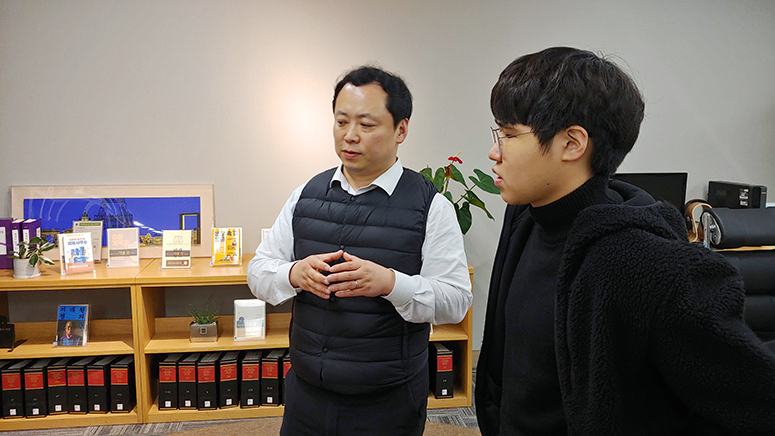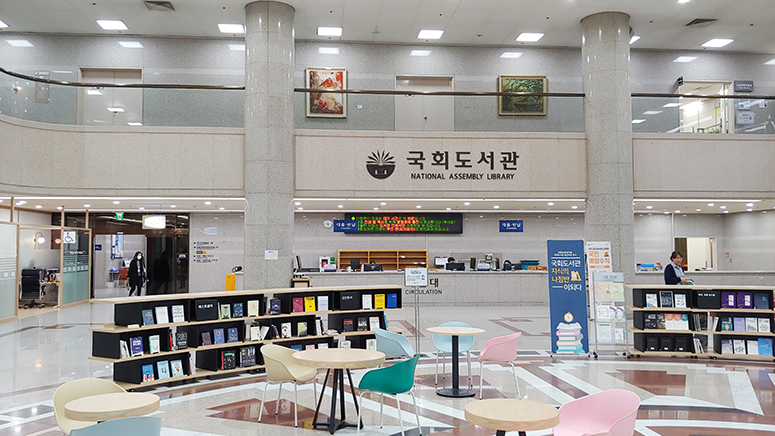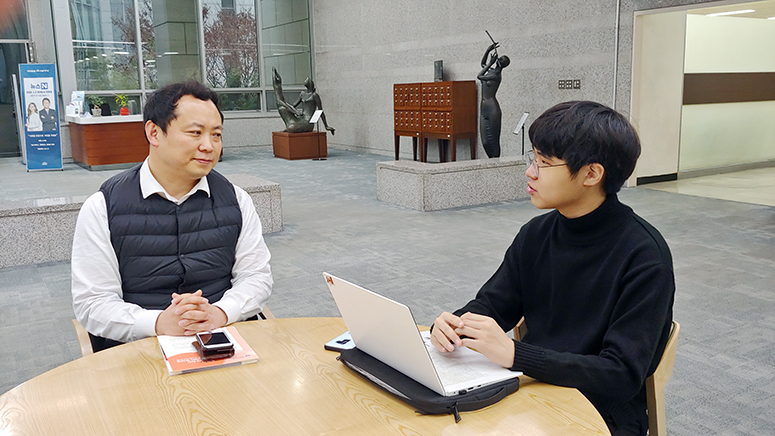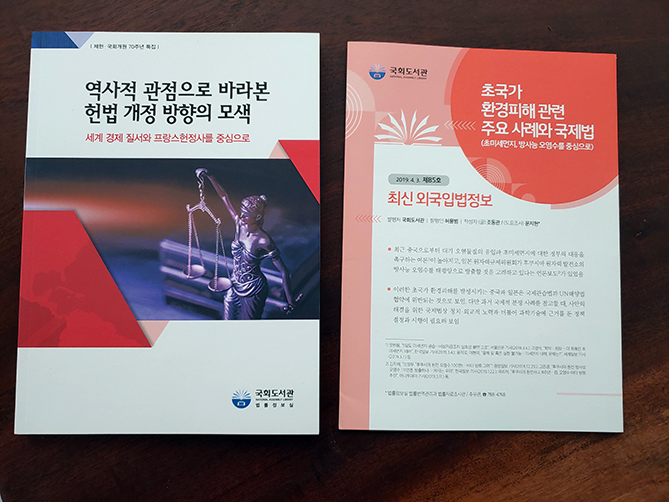The general election was in April and we hear about the members of the National Assembly on the news and social media on a daily basis. Although we are familiar with the National Assembly, there is something that not everyone is familiar with: the library inside the National Assembly. The library was established in 1952 in Busan, Gyeongnam Province, and relocated to the National Assembly building in Yeouido, Seoul, in 1975. I sat down with Dong Kwan Jo, who is the Legal Specialist with the Office of Legal Information at the National Assembly Library to find out more about the library.

Jo first explained that the objective of the National Assembly library was initially to support the members of the National Assembly with law-related information that is paramount to the lawmaking process. The types of books available mostly fall in the social science category and there are many law-related books that are not available elsewhere. Many Assembly members access books from here to write resolutions to be sent to other countries.
I wanted to know who maintains the library and what credentials are needed to do so. Jo explained that those who work in the library are experts in their fields, and many have Doctor’s degrees from countries like the U.S.A., France, the U.K., Germany, and Japan. Since issues addressed within the Assembly require expert knowledge and expertise, they work closely with the Assembly members on projects and write reports. For example, to answer one question about an issue, as many as seven reports can be written. In this way, not only does the library stock books, but they also make reports and books related to law.

Jo showed me a report that he wrote last year about laws regarding transnational environmental damages such as ultrafine dust and radiation. The Assembly members use the data in this report when they write resolutions and proposals for new laws regarding this issue. The people working in the library need to be experts in their field because when a member of the Assembly requests information, they need to give them accurate information. It was interesting to find out that the members of the Assembly and the library work together so closely.

Another function of the library is to collect and organize an endless sea of information, especially that regarding social and political issues from think tanks around the globe, because the Assembly needs to be up to date with the changes around the world. The Parliamentary Information Office is in charge of this function, and they regularly send a summary of the information they find to the members of the Assembly.

Before I saw the National Assembly Library myself, I expected it to be like an ordinary library, if not a little more “strict-looking,” but when I entered the library building, it felt welcoming. Upon finishing the interview with Jo, I realized that the members of the National Assembly do not work alone or just among themselves. I also realized that the National Assembly Library does much more than just keep books; it plays a big role in supporting the Assembly members. Now, when I hear about issues related to the National Assembly or the law on the news, I know that members of the library were most likely involved somehow, working hard in the background to provide support.

Sewon Han
Sophomore
Shepherd International Education

